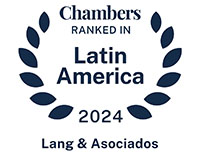One of the functions of the Costa Rican Ministry of Public Works and Transportation is to regulate the use, access, exits, circulation and vehicle traffic on national highways. There are regulations in the country to ensure thatthe construction of pathways for either entering or exiting a national route from and to a property in Costa Rica, complywith the technicalrequirements in regards to road safety, its correct operationand to avoid improper access.
Applicable regulations indicate that it is illegal to use the highway’s right of way as a manner of enabling properties with boundaries with a national road, by building unauthorized accesses from the corresponding public road. The reason behind this is that unauthorized accesses may have a direct impact in the increase of traffic accidents, therefore being detrimental to the physical integrity of pedestrians, passengers in public or private transportation and other users of the highways. For such an access to be authorized, a special permit issued by a commission formed by representatives of different government entities involved in road administration, highway construction and infrastructure safety will be needed.
Other variables such as if the highway is administrated by a concessionaire, topographical conditions of the right of way and municipality regulations, among others, may affect the procedures for the approval of this type of permits, which can translate into additional costs and delays which must be taken into account when making a decision of purchasing property in Costa Rica under these circumstances.
The need for obtaining an authorized access in properties in Costa Rica with boundaries on national highways can have further consequences, since, for example, the granting of the respective operation permit required to be issued by the corresponding Municipality in case commercial activities will be undertaken in such land, is linked to the approval of the restricted access permit.
It is clear that when acquiring real estate in Costa Rica in cases like the one we have explained, it is not enough to perform the usual due diligence by the means of searches at the Costa Rican Public Register, Cadastral Register and at the Municipality where the property is located. Deeper examination and evaluation will be necessary so the relevant information for a cost-benefit analysis can be made.


.jpg)




